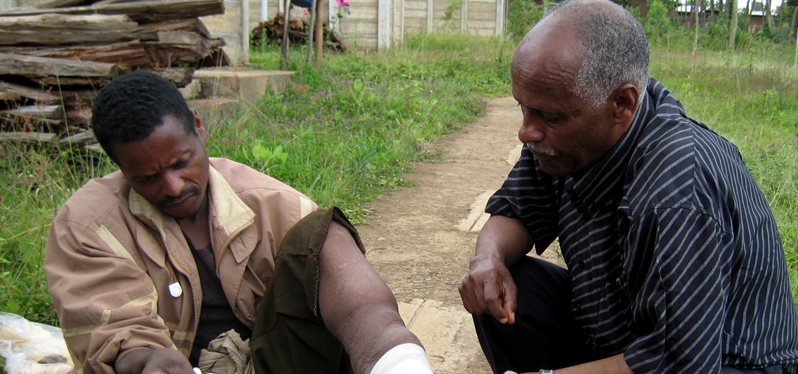The Wellcome Trust Brighton and Sussex Centre for Global Health Research acts as an international, multidisciplinary research hub for podoconiosis. Read our latest news below.
BACKGROUND IMAGE FOR PANEL
October 2018
The first international podoconiosis conference
The First International Podoconiosis Conference took place in Addis Ababa, Ethiopia on 23rd September 2018. The overall theme for the conference was ‘Research to Implementation: A Call for Global Action’. The Brighton & Sussex Centre for Global Health Research and Footwork were delighted to unite with local NGOs, University partners and the Ethiopian Federal Ministry of Health to host this conference. As the country bearing the highest burden of podoconiosis globally as well as the one with the most advanced research and implementation, Ethiopia was the ideal setting for this conference.
The day offered a diverse mix of keynote speakers, plenary sessions, presentations and panel discussions. Presentation sessions explored areas of podoconiosis research from aetiology and distribution through to disease consequences, prevention and treatment. Those implementing programmes had the opportunity to share experience and develop partnerships. The conference closed with the launch of a Declaration to affirm global commitment to eliminating podoconiosis within our lifetimes.
We were delighted with the response from the podo community. Approximately 130 people from 10 countries attended the conference, and around 260 attendees came to our joint reception with The Neglected Tropical Disease NGO Network (NNN) whose conference took place the following day. We also had an active online community on social media with approximately 44,200 accounts reached on twitter with our conference hashtag #podo18.
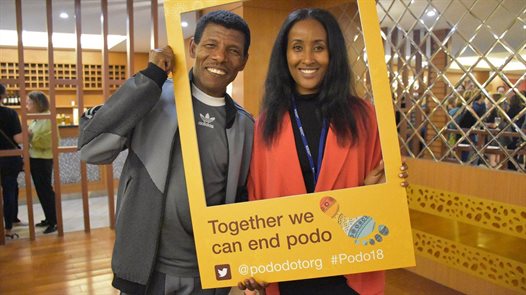
Read more >
BACKGROUND IMAGE FOR PANEL
December 2017
Rwanda mapping underway
As part of their 'Global Atlas of Podoconiosis' work, Dr Kebede Deribe and Prof Gail Davey from BSMS joined collaborators from the Rwanda Biomedical Centre to train five teams of four data collectors in Musanze, northern Rwanda in November. Each team consisted of a team leader, a medical doctor, a nurse and a laboratory technician. Training covered a background on podoconiosis (podo), practical sessions on smartphone data entry and use of two rapid tests known as Wb123 and FTS. The five teams started mapping through all 30 districts in Rwanda this week and will aim to complete mapping within one month. The results will enable the Rwandan Ministry of Health to prioritise service provision in certain districts and serve as a baseline to measure the impact of future interventions of podo in Rwanda.
BACKGROUND IMAGE FOR PANEL
November 2017
Professor Gail Davey, Dr Kebede Deribe and Esther Garibay from the Global Health and Infection department participated in the Annual Meeting of the Coalition for Operational Research on Neglected Tropical Diseases (COR-NTD) in Baltimore, MD November 3-4.
Prof Davey chaired and presented at a panel on Identifying a Research Agenda for NTD-related Stigma and Mental Health Care.
The goal of the COR-NTD meeting is to strengthen the community of NTD researchers, program implementers and their supporters to address knowledge gaps in a coordinated way, and to inform the agenda of future NTD research.
As such, it presented a good opportunity for Dr Deribe to share an update on the Global Atlas of Podoconiosis work, including his recent publication on Calculating the cases in Ethiopia using geostatistical methods, as well as to introduce the new NIHR Global Health Research Unit on Neglected Tropical Diseases (NTDs) based at BSMS.A lot of discussion took place regarding how diagnosis and care for NTDs, for example skin related ones could be integrated to offer more effective morbidity management and strengthen prevention programmes.
Professor Gail Davey, Dr Kebede Deribe and Esther Garibay from the Global Health and Infection department, recently circulated an update on the work of Footwork, the International Podoconiosis Initiative striving for elimination of this debilitating and 100% preventable disease.
A strategic Footwork meeting was held on Sunday 5 November where it was agreed one of the priorities for the organisation, now fully run from BSMS, is to raise the profile of podoconiosis by generating more awareness so that the right resources are allocated towards complete elimination in our lifetime.
Significant work is taking place to map the disease worldwide, with Gail and Kebede leading a kick-off workshop in Rwanda in November prior to Rwandan health workers commencing the mapping work.
Read the update here >
Tewodros Gebresilase, a PhD student at Addis Ababa University and Armauer Hansen Research Institute, receives one of the 10 developing country awards.
Tewodros Gebresilase, a PhD student at Addis Ababa University and Armauer Hansen Research Institute (AHRI), Ethiopia, participated in the 67th Annual American Society of Human Genetics (ASHG) meeting in Orlando, Florida, from October 17-21. Tewodros received one of the 10 developing country awards from ASHG. During the meeting he gave a poster talk on his validation result of the previous genome-wide association study on podoconiosis, a non-filarial elephantiasis resulting from long-term exposure of bare feet to clay soil of volcanic origin. His finding suggests a possible involvement of variants in the Human Leukocyte Antigen (HLA) class II region in susceptibility to the disease.
BACKGROUND IMAGE FOR PANEL
October 2017
Gail Davey, Professor of Global Health Epidemiology at BSMS, appointed as Vice Chair of the Neglected Tropical Disease NGO Network (NNN)
Prof Davey's appointment took place at the 8th annual NNN summit in Dakar, Senegal in October 2017 where 300 participants from 100 organisations and 49 countries discussed the importance of cross-sector collaboration in ending the Neglected Tropical Diseases that affect one billion of the world’s poorest people.
Commenting on her appointment, Prof Davey said:: "This is a great opportunity to advocate the voice of the implementers, and a strategic move for BSMS, given recent funding as a NIHR global health research unit on NTDs. I've been able to represent NNN in a Stakeholders' Working Group meeting in Geneva at which we reviewed progress towards the London Declaration goals, and there will be many further opportunities like this."
The NNN was established in October 2009 to create a global forum for non-governmental organisations working to control NTDs including onchocerciasis, lymphatic filariasis, schistosomiasis, soil transmitted helminths, trachoma, and leprosy. One of its strengths is that its membership is mostly community based organisations that are working on the ground with local leaders to bring about change.
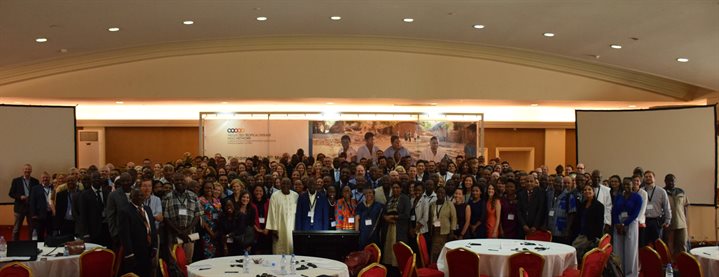
July 2017
Multi-million pound award boosts research into neglected tropical diseases
Research into neglected tropical diseases that cause suffering among some of the world’s poorest communities has been given a much-needed boost by a multi-million pound grant to a specialist team at BSMS. The National Institute for Health Research (NIHR) has awarded the Global Health research team at BSMS a £5,745,589 million from 2017-2021 to establish a global research unit, which will be known as the NIHR Global Health Research Unit on NTDs at BSMS. The grant includes support for seven major projects across three often-neglected NTDs: podoconiosis, mycetoma and scabies.
Read more >
Small Batch Coffee joins campaign to prevent podo
Gail Davey, Professor of Global Health Epidemiology at BSMS, gave a presentation at Small Batch Coffee’s Jubilee Street store in Brighton on Thursday 13 July to raise awareness and money to combat podoconiosis.The event featured an array of Ethiopian specialities including Ethiopian food and a DJ playing Ethiopian tunes, with all proceeds going towards Preventing Podo, the initiative led by Prof Davey with the support of the Alumnus Relations Office at the University of Sussex.
Read more >
BACKGROUND IMAGE FOR PANEL
June 2017
Global Health team visit Rwanda
Dr Kebede Deribe and Prof Gail Davey, Wellcome Trust Brighton and Sussex Centre for Global Health Research, travelled to Kigali and the Musanze district, Rwanda, to make preparations for country mapping for instances of podoconiosis with collaborators from the Ministry of Health, Rwaza Health Centre and the Imidido project.
Dr Deribe and Prof Davey were delighted to meet patients and make good progress with the mapping protocol.
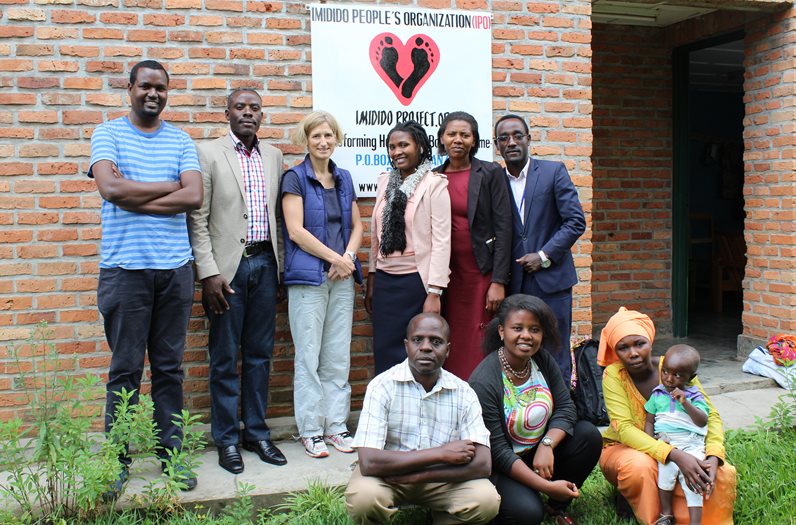
BACKGROUND IMAGE FOR PANEL
April 2017
Podoconiosis at the WHO Neglected Tropical Disease Summit
The World Health Organisation hosted a Neglected Tropical Disease (NTD) Summit from 19-23 April to celebrate progress in the five years since the London Declaration on NTDs.
BSMS was represented by Prof Gail Davey and Dr Kebede Deribe from the Wellcome Trust Centre for Global Health Research.
Achievements celebrated include treating 1 billion people in NTD-endemic areas, and massive reductions in sleeping sickness and Guinea worm disease. The Summit included sessions focused on single diseases and others encouraging integrated efforts across diseases.
Prof Davey spoke on integrated foot care in the 'Skin and limb care in NTDs' session and both Prof Davey and Dr Deribe hosted a session on the 'Global Atlas of Podoconiosis', as recently described in the Lancet Global Health.
The session was picked up in an article in The Guardian, and new partners have already come forward to contribute to global mapping efforts as a result.
March 2017
In conversation with Dr Kebede Deribe
Dr Kebede Deribe, Postdoctoral Research Fellow at BSMS, is being funded by a five-year Wellcome Trust Intermediate Fellowship in Public Health and Tropical Medicine to develop the Global Atlas of Podoconiosis. He spoke to Pulse, Brighton and Sussex Medical School's magazine about his research.
Read more >
February 2017
Award for Footwork's podoconiosis video
Footwork is the co-winner of the 2017 Consortium of Universities for Global Health (CUGH) Pulitzer Global Health Video Competition for the video 'Best Foot Forward', developed in partnership with Ripple Effect Images.
The video depicts depicting the source, treatment and prevention of podoconiosis and to be used as training material for those in affected in endemic areas.
November 2016
Workshop on Tackling Podoconiosis in Central America
Dr Mei Trueba and Prof Gail Davey organised and delivered the Workshop ‘Tackling Podoconiosis in Central America: Geographical Distribution and Differential Diagnosis’ in the Universidad del Valle (Guatemala) on 14-15 November 2016.
The aim of this workshop was to: a) raise awareness of the problem of podoconiosis in Central America, b) promote linkages and collaborations for sustainable action and c) open pathways to start podoconiosis prevention and treatment in Guatemala.
The workshop was financed by the International Research Partnerships and Network Fund (Sussex University) as part of an action-research project that aims to assess to what extent podoconiosis is a neglected public health issue in Central America and establish local infrastructures for prevention and management.
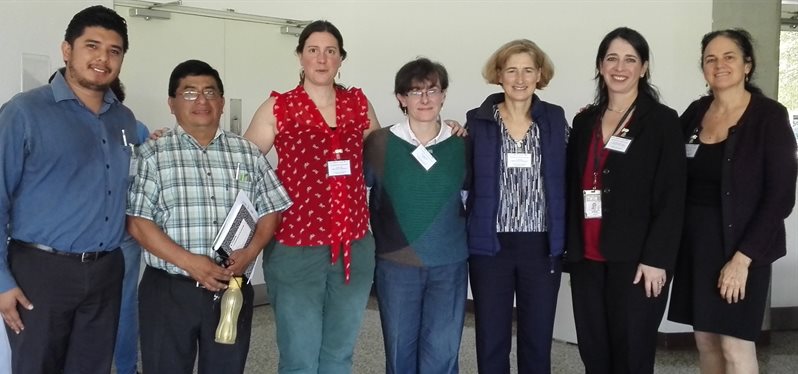
Sixth Meeting of the Footwork Technical Committee
Three members of the BSMS Podoconiosis Research Group attended the Sixth meeting of the Footwork Technical Committee on Saturday 12 November 2016 in Atlanta, GA.
Representatives from endemic countries' Ministries of Health, CDC, the International Foundation for Dermatology, the Schistosomiasis Control Initiative, the Global Alliance for the Elimination of LF, the Malaria Consortium and Helen Keller International were hosted by Wendy Santis, Footwork Director, and Prof Davey, Footwork Founder. Dr Kebede Deribe and Dr Mei Trueba presented research updates, including Dr Trueba’s work on podoconiosis in Guatamala. Exciting advances in Uganda, Cameroon and Ethiopia were described by academics and programme managers from these countries.
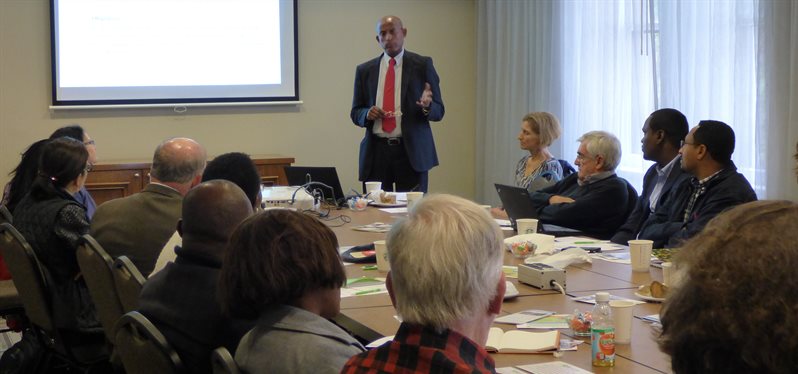
BACKGROUND IMAGE FOR PANEL
August 2016
Project to Explore Scale of Podoconiosis Impact in Central America
Prof Gail Davey and Dr Mei Trueba, from the Department of Global Health and Infection, signed a three-year collaborative contract in 2016 with the Universidad del Valle (Guatemala), following a successful research bid with the University of Sussex's International Research Partnerships and Network Fund. The project will explore the extent to which podoconiosis is a neglected public health problem in Central America and will support endemic country control through the establishment of sustainable regional collaborations and evidence-based interventions.
BACKGROUND IMAGE FOR PANEL
June 2016
Impact Award (Public Engagement)
Prof Gail Davey and Prof Somnath Mukhopadhyay have been recognised at the University of Sussex's Impact and Research Awards 2016. The awards are presented to University of Sussex researchers whose work has had exceptional effects on the outside world. Prof Davey received the Impact Award (Public Engagement) for ‘Podoconiosis research: transforming patients’ lives’.
April 2016
International podoconiosis initiative awarded $100,000
Footwork, the International Podoconiosis Initiative supported by the Wellcome Trust Brighton and Sussex Centre for Global Health Research, has been awarded $100,000 for the ‘Gondar Podoconiosis Prevention and Treatment Project’.
The Izumi Foundation made the award following presentation of a proposal at their offices in Boston, USA, by Prof Gail Davey and Wendy Santis, Founder and Director of Footwork, respectively.
The project represents a two-year partnership between Footwork, International Orthodox Christian Charities (IOCC), and the Ethiopian National Podoconiosis Action Network.
Treatment will be provided to 3,000 patients and prevention messages to 15,000 residents of the Gondar area in northern Ethiopia.
Prof Davey, Professor of Global Health Epidemiology said: “We are delighted to attract a new funder to support delivery of prevention and care to people with podoconiosis. The project struck chords with the philosophy and vision of the Izumi Foundation. We’re excited to see this new partnership developing."
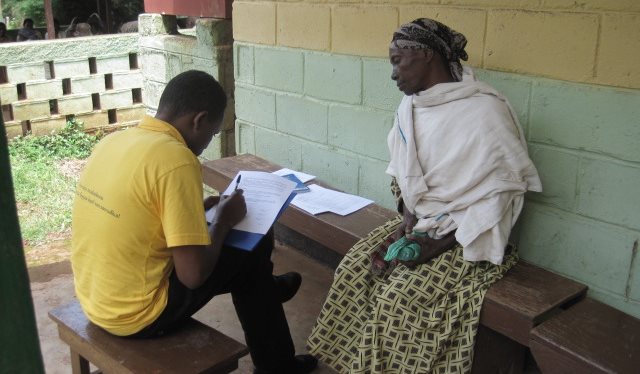
BACKGROUND IMAGE FOR PANEL
March 2016
New Animated Video ‘Best Food Forward’
Working in partnership with Ripple Effect Images, the Podoconiosis Research Hub has created a new animated video, ‘Best Foot Forward’, depicting the source, treatment and prevention of podoconiosis and to be used as training material for those in affected in endemic areas.
Ripple Effect Images are a collective of National Geographic photojournalists who aim to “harness the power of visual storytelling” by documenting schemes that are working to empower women and girls around the world. After hearing about Footwork, the Podoconiosis Initiative founded by BSMS Professor of Global Health Epidemiology, Prof Gail Davey, the two organisations collaborated to create the short animation.
BACKGROUND IMAGE FOR PANEL
October 2015
Podoconiosis Research Network in Central America
The Wellcome Trust Brighton and Sussex Centre for Global Health Research is developing a network in Central America to study the impact of podoconiosis in Costa Rica and Guatemala. It will also support endemic country control through partnerships with two research institutes in those countries. While members of the Centre have been involved in work on podoconiosis in Ethiopia since 2006, this is the first time work will focus on the Americas. “For such an easily preventable and treatable condition, podoconiosis takes a terrible toll on some of the poorest people in tropical areas around the world,” says Gail Davey, Professor of Global Health Epidemiology at BSMS, who is leading the project. “It’s exciting that we are now able to investigate just how big an impact the disease has on people in Central America, and will be able to adapt what we’ve learned about managing podoconiosis in Africa to this region.”
August 2015
BSMS10 helps tackle neglected tropical disease in Cameroon
In 2015, BSMS’ ten-year anniversary fundraising efforts have helped fund a podoconiosis training workshop in north west Cameroon. Two million Cameroonians (10% of the population) are at risk of podoconiosis and preliminary mapping has shown that around 1% of the population are affected by it. The workshop trained 19 nurses from the Cameroon health ministry and six leaders from a local community development organisation, with sessions ranging from the theoretical to the practical. Participants discussed ways forward in preventing and treating the disease through advocacy efforts, developing a regional committee and local patient support groups, and improving patient education. Patients were also invited along to the workshop to provide hands-on training for participants in screening, disease management and patient education. Trainees learned how to register patients, help them to wash and treat their legs and feet, and carry out bandaging. The workshop was co-funded by the charity Footwork.
